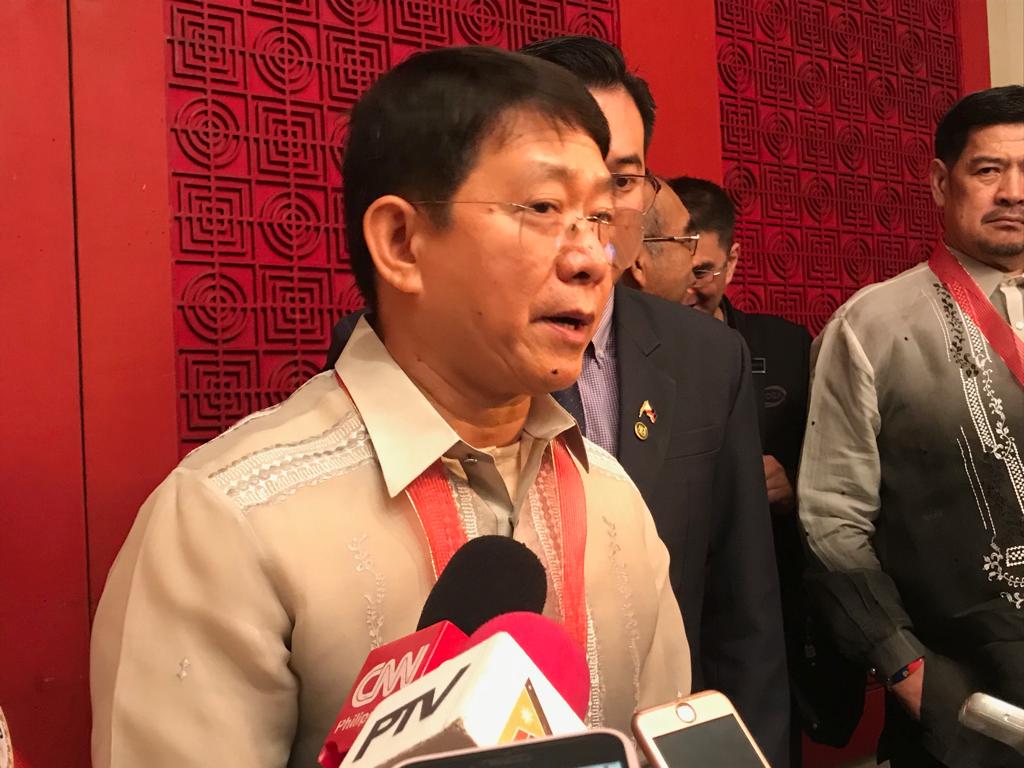
DILG Secretary Eduardo Año. INQUIRER.net file photo / Daphne Galvez
MANILA, Philippines – Former military chief and Interior Secretary Eduardo Año has likened the government’s program of placing closed circuit television (CCTV) cameras along major roads to the Big Brother reality show, where contestants are being monitored constantly.
During the launch of the Disiplina Muna program in Marikina City on Friday, Año said that the CCTV cameras have helped the said locality in crime reduction, as perpetrators are easily identified. He also said that it has helped prevent crime as authorities monitor activity on the streets.
“‘Yan ang gusto sana nating ma-achieve […] ang ating mga kababayan naglalakad ng 24 oras na walang pangamba ng anumang krimen. Maari ngang ihambing ang layuning proyekto sa ideya ng Pinoy Big Brother House, isang sikat na reality TV show sa bansa,” he told the audience.
(That is what we want to achieve… our countrymen to walk anytime without any worry of being victim of a crime. The CCTV project can be likened to the idea of Pinoy Big Brother House, a known reality show in the country.)
“Lahat ng kilos o galaw ng mga housemates ay nakikita ni Big Brother, at ang big brother natin ay ang authorities, ang ating authorities na siyang gagawa ng hakbang o kaukulang aksyon para mapigilan ang anumang krimen,” he added.
(All of the moves of the housemates can be seen by Big Brother and our big brother is the authorities, which will spring into action to prevent any crime.)
In the Big Brother shows, including the localized version, housemates enter the Big Brother house and compete for a chance at a grand prize. However, their activities would be monitored through pre-installed cameras, and lapel microphone sets that they have to wear all the time.
However, Año also clarified that the privacy of individuals would not be violated despite the installation of monitoring systems, as these would only be used for crime-solving activities.
“Dito ay walang privacy na maba-violate sapagkat […] ang target lang naman namin dito ay ang mga criminal elements, at makatulong sa ating mga kababayan na nangangailangan ng tulong,” he added.
(This does not violate any privacy issues because our targets here are criminal elements and we hope to help our countrymen.)
However, Bayan Muna Rep. Carlos Zarate, who had clashed with the Department of the Interior and Local Government (DILG) officials in the past, warned against this particular program.
He also noted that the cameras which may be used also pose as security threat, as it may be imported from a Chinese company.
“Delikado yan lalo na sa progressives, opposition at critics ng admin. Lalo pa sa context ngayon ng crackdown laban sa amin,” he said. “Delikado din yan in another sense dahil threat sa national security yan dahil Huawei ang gagamitin at may malaking vested interest ang China sa ating bansa.”
(That could be dangerous especially for the progressives, opposition and critics of the administration. Most especially in the context of crackdown against us. That is dangerous in another sense of threat to national security because Huawei will be used and China has vested interest in our country.)
The issue of personal privacy has been discussed for several times, with critics of the administration slamming the proposed national ID system as it may expose people opposing the government to harassment.
Zarate and fellow Bayan Muna official Neri Colmenares said before that it is dangerous to handle privacy matters to the government amid problems with other minor privacy issues.